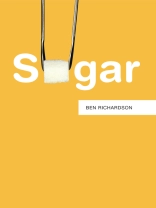There is more sugar in the world’s diet than ever before, but life is far from sweet for the exploited producers making nature’s ‘white gold’ and the unhealthy consumers eating it.
Why has the billion-dollar sugar trade created such inequities? In this insightful analysis, Ben Richardson argues that the most compelling answers to this question can be found in the dynamics of global capitalism. Led by multinational companies, the mass consumption of sweetened snacks has taken hold in the Global South and underpinned a new wave of foreign investment in sugar production. The expansion of large-scale and highly-industrialised farms across Latin America, Asia and Africa has kept the price of sugar down whilst pushing workers out of jobs and rural dwellers off the land. However, challenges to these practices are gathering momentum. Health advocates warning against costly diseases like diabetes, trade unions fighting for better pay, and local residents campaigning for a cleaner environment are all re-shaping the way sugar is consumed and produced. But to truly transform sugar, Richardson contends, these political activities must also address the profit-driven nature of food and farming itself.
Tabella dei contenuti
Acknowledgements
1. Introduction
2. Growing Markets, Growing Waistlines
3. Terminal Trade Dependency
4. Exploiting and Expelling Labour
5. Expanding and Exhausting Land
6. A Sweeter Deal for All?
Selected Readings
Notes
Circa l’autore
Ben Richardson is Associate Professor in International Political Economy in the Department of Politics and International Studies, University of Warwick.












